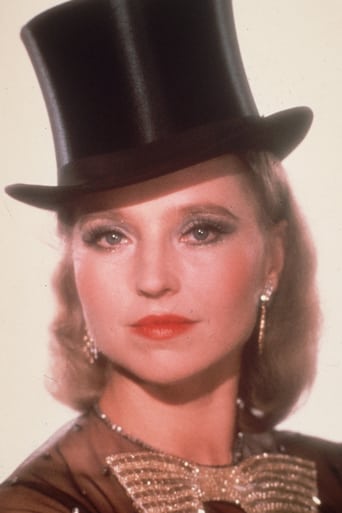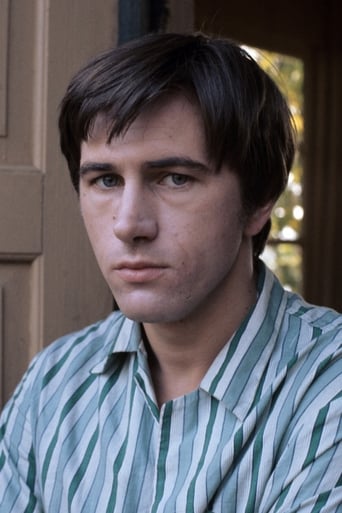StunnaKrypto
Self-important, over-dramatic, uninspired.
ClassyWas
Excellent, smart action film.
Matrixiole
Simple and well acted, it has tension enough to knot the stomach.
Joanna Mccarty
Amazing worth wacthing. So good. Biased but well made with many good points.
Slime-3
Very little in this film can honestly be said to grab the attention for long, unless perhaps, you are a Godard completest. An art historian might appreciate the messages hidden within the old master painting being turned into a movie by the director at the centre of the piece. For the rest of us it's hard to follow threads of the various partially connected stories in which largely unappealing characters bicker, berate and bed one another. Jerzy a Polish movie director, has literally 'lost the light' in his big budget production. His efforts are hamstrung by news of Solidarity's emergent uprising in his native land, the financial demands of his producers and his involvement with two women : the owner of the hotel in which most of his film company lodge, and a dowdy sacked worker at her husbands factory. That's pretty well it. There's not much more. The images of the old masters Jerzy is attempting to turn into a film, although he seems to have little concept of exactly how, are nicely lit but the films exteriors around the promising location of Lake Geneva are drab, the interiors even worse and despite some big names among the cast there is little charisma in evidence. I've watched it twice and sadly 'Passion', an oddly inappropriate title in itself, made no more impression on the second viewing. The Godard of 'Pierrot Le Fou' (a film I loved) seems a long way from the Godard of 'Passion'. Other reviewers have clearly found a meaning and beauty that I have missed. But hey! If it floats your boat then thats good.
Shane James Bordas
Godard's 'Passion' will inevitably draw violent reactions from didactic viewers with a classical Hollywood outlook, even though it expressly addresses the contradictions and pains in discerning just what makes a film "a film". To condemn it as boring or shapeless is to blindly miss the point.For those of us more inclined to tackle this fascinating question, there is much to luxuriate in here. From even a purely aesthetic viewpoint, the wonderfully incongruent images (like the ship in the forest) and the beautifully lit reconstructions of classical paintings (with their attendant outpourings of classical music) are enough to hold sway.With these tools, Godard contrasts the passion and belief in labour; the practical against the artistic. Isabelle Huppert's stuttering, incoherent virgin loves her factory job and fights for her "right" to work, while the jaded director Jerzy, surrounded by a bevy of naked beauties during the making of his elusive film, sullenly stages his reconstructions. His work, however, contains no such solace and he becomes morose to the point of inertia by his task of creating a formally perfect but outwardly fragmented piece. Jerzy's constant frustration with having to explain to others what his film is "about" is a poignant running comedic highlight. But that is only part of the battle - practical concerns impinge also. This is painfully clear (and bitterly funny) when Jerzy's ever suffering assistant points out to the frustrated producer the individual cost of each item on the set in an attempt to explain where all the money is going.The characters aggressive tussling, either through physical pulling and pushing or through their cars (reminiscent of Godard's masterpiece 'Week End'), also signify the difficulty and pain inherent in any kind of birth. The quiet moments call out to be examined and celebrated as much as the grand statement while others jostle for their money, their moment, or even a simple explanation as to what it all means.Like most of Godard's late work, this mosaic approach will not appeal to all who cross its path (what film ever does?) but, even if it does ultimately fall short of answering any of the questions it asks, adherents will find much to ruminate on.
Owen Christopher Keenan
It's not that I don't like arty films, I just found this so dreary. i can see why it may be of interest to a film-student, but to sit through it for entertainment purposes is certainly not recommendable! If you suffer from lack of sleep, check this out and it'll have you snoozing within no time at all. A christmas present for a friend you want to get rid of. In other words - pretentious crap.
nunculus
Godard scholarship, lined along the axes of variants of French post-structuralism, would appear to have gotten it all wrong: a Godard movie can't be assimilated into a coherent and non-self-contradictory statement about work, gender, representation, or whatever academically approved topic you might name; it can't even be assimilated into a coherent process. What has to be confronted is that the work is essentially diaristic and subjective; these films are the more or less uncensored insides of Godard's head, not a white paper on a topic (no matter how "challenging" or "frustrating to expectations").It also must be acknowledged that for Godard, even ideation is essentially sensuous, aestheticisable; ideas, like a piece of irruptive slapstick staging, a stale aphorism, a blast of the Mozart Requiem, are objects of delectation and desire, and finally repositories of aesthetic emotion--handwrapped presents. To say that the ideology of Godard's Maoist period was finally another aesthetic object for him is not to condescend to him as a radical-chicster. Very simply, Godard is an artist for whom the gland that produces aesthetic feeling works ten times more overtime than anyone else.This produces the jarring and sometimes tonic feeling that we are overhearing the disordered and associative thoughts of God as He falls asleep. In a late, lyric work like HELAS POUR MOI, this quality becomes transcendent: the film is like a communication from a higher alien intelligence. In PASSION, that desire to aestheticize everything in sight, to wave a wand marked "excruciating beauty," in essence to make like a cinematic Goldfinger, is tripped up by the story Godard was required to tell in order to receive funding.The necessity of telling a story is one of the (many) subjects that flit by in this production, which followed Godard's minorly popular comeback, EVERY MAN FOR HIMSELF. And the story Godard tells is so halfheartedly offered it disrupts the all-pervasive atmosphere of heightened lyricism he generates elsewhere. In essence, it's the same old movie about the making of a movie: the director (Jerzy Radzilowicz) is an idiot caught between a virginal proletarian (Isabelle Huppert!) and a slatternly hanger-on (Hanna Schygulla). The director pontificates, the producer (Michel Piccoli) avoids paying checks, and the inevitable phone calls for completion funds are delivered in dirty rooms.If this reminds you of everything from BEWARE OF A HOLY WHORE to LIVING IN OBLIVION you're right; but nothing in those movies compared to Godard's strategy of contempt-uously making his stars Huppert and Piccoli stutter and cough, respectively. Or to the moment when a grip tells a child extra out of nowhere, "O those who will come after us--do not harden your hearts against us."PASSION reminded me of John Simon's review of LE GAI SAVOIR, which began in the manner of, "I have seen no movie more illucid, arbitrary, and, yes, insane as..." PASSION genuinely is insane--it raises every line, every gesture, every landscape to a plane of unbearable intensity, and refuses to draw any lines between them. The cumulative effect suggests the personality of a slightly depressed but highly stimulated schizophrenic. Godard's late work is so beyond the prison of our narrative and identificational expectations that we may have to wait several lifetimes for its voice to be genuinely, not just indulgingly, heard.




